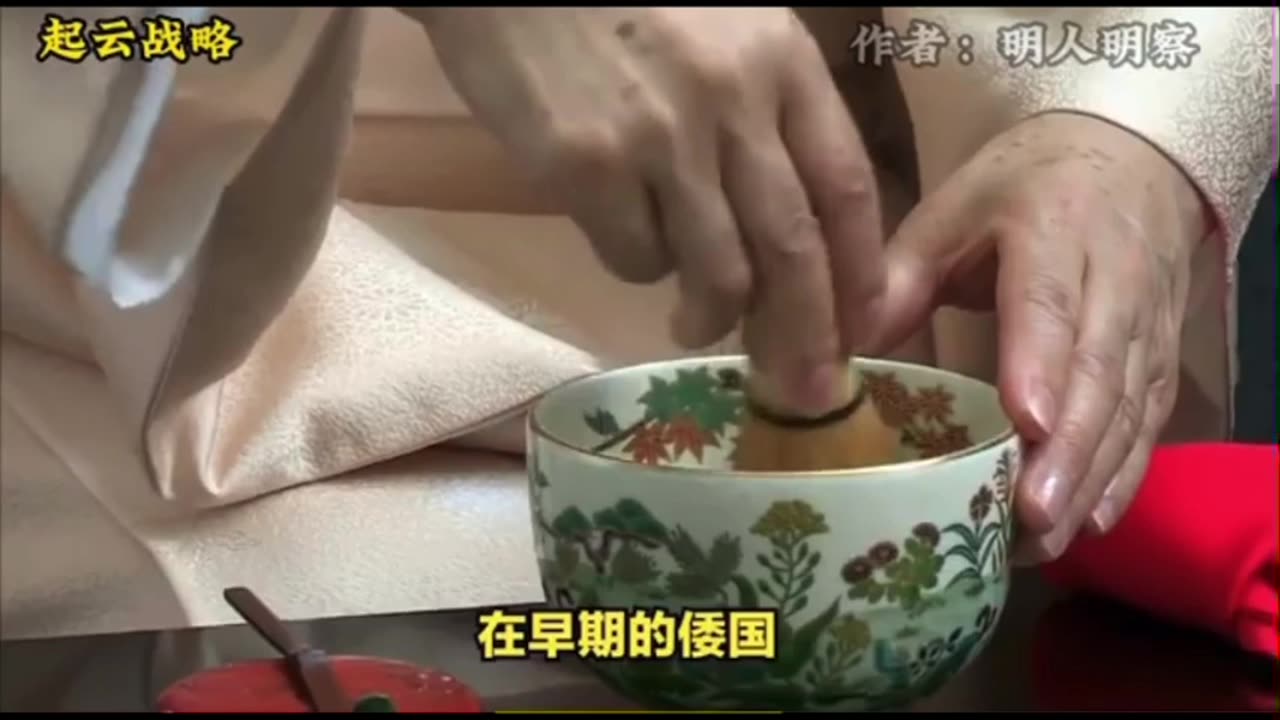Premium Only Content

Apocalypse of the Fall of Japanese Culture
Apocalypse of the Fall of Japanese Culture video: How US since after WWII successfully turning Japanese men to become feminine, submissive and destroying their national pride to serve Americans interests 日本文化堕落启示录: 二戰後美國如何成功地將日本男人變得女性化、順從並摧毀他們的民族自豪感以服務於美國人的利益
In 1945, fascist Japan announced its surrender. Japanese society then ushered in a period of American occupation and transformation. At the Paris Peace Conference after the end of World War I, the victors ruthlessly plundered and humiliated the defeated countries, which became an important factor that triggered World War II. Therefore, the United States does not intend to follow the practice of Britain and France to humiliate and carve up Germany decades ago, but to weaken Japan as much as possible from the day of occupation, but at the same time make it stronger - weakening refers to eliminating Japanese militarism and feudal traditions To disintegrate the foundation of Japan's independent military power; to be strong is to make Japan grow into a modern country that follows the Western economic and trade system, has sufficient economic vitality and a high standard of living.
After the United States was involved in World War II at the end of 1941, it was considering the transformation strategy of the Japanese occupation after the war, and organized many scholars to conduct research on Japan. American politicians realized that the modernization process after the Meiji Restoration only allowed Japan to have a political and economic system similar to that of the West. The latter did not really accept the cosmopolitan ideas of free trade, democracy, and human rights. Immerse yourself in pre-modern times. Therefore, the transformation strategy of the Japanese occupation emphasized the need to export American cultural products culturally, and use the cultural soft power of the West to help Japan emerge from the pre-modern quagmire.
At the beginning of the deployment of MacArthur's occupation of Japan, he set up a civilian intelligence and education bureau at the Allied Command, which was dedicated to eliminating militarism and extreme nationalism among Japanese citizens of all walks of life through cultural construction. The Folk Information and Education Bureau has set up intelligence centers in major cities in Japan to distribute Japanese versions of American books and periodicals, aiming to promote the values of democracy and freedom.
After the Cold War officially kicked off, the U.S. occupation authorities also included a large amount of hostile strategic propaganda against socialist countries such as the Soviet Union and Eastern Bloc and China in their cultural propaganda, in order to prevent the Japanese country and its people from defecting. The democratization and transformation of Japan by the US occupation authorities was greatly weakened after entering the Cold War. The Japanese political and economic circles reverted to nationalism and conservatism. Many people were active in Japanese politics during the two world wars and the war of aggression against China. characters are unbanned. The attention of the United States turned to signing a peace treaty with Japan to prevent Japan from turning to the Soviet camp.
Born in 1945, he received a doctorate in history from the University of Wisconsin in the United States, and is currently a professor of international public policy at the Graduate School of Osaka University in Japan. Takeshi Matsuda, a well-known American research expert in Japan, believes that the transformation of Japan at the beginning of the US occupation was relatively more serious. It is not thorough, but it cannot help but contain a certain racial hierarchy and the superiority of the victorious country. It belongs to the stage of rigid indoctrination by the United States; after that, it changed its tough attitude and recognized the particularity of Japanese culture, political traditions and society. Various means, including culture, endow Japan with a "proportionate status" in front of the United States, making it semi-permanently attached to the United States, thereby achieving a long-term "soft peace."
In his book "Postwar American Soft Power in Japan: The Origin of Semi-Permanent Dependence" by Takeshi Matsuda, he systematically introduced the transformation of Japan under the leadership of the United States with great limitations and strong cultural color. Specific practices include: politically, the signing of the "lenient" Peace Treaty with Japan and the Japan-U.S. Security Treaty, which basically exempted Japan from war crimes and assumed the responsibility for defending Japan's security; economic and international relations In terms of culture, it made promises to obtain more favorable access to fishery rights for Japan and open up the US domestic market; in terms of culture, mainly in the name of American non-governmental organizations, it provided art, science, philosophy, religion, Injection of resources in entertainment, literature, education and other fields.
The book elaborately reviews the cultural exchanges carried out by Rockefeller III, the American cultural ambassador to Japan, in Japan in 1951, effectively strengthening the cultural relationship between Japan and the United States, and exporting American cultural products. Rockefeller III came from the Rockefeller family, a well-known financial oligarch family in the United States, and enjoys a world reputation in the field of culture and charity. He proposed three principles of transnational cultural exchanges: the principle of bidirectionality, the principle of joint planning, and the coordination and interaction between the government and the private sector. Cooperation, corresponding to people-to-people exchanges between the two countries, the export of American education and academic systems, and cultural promotion activities on specific themes.
Rockefeller III submitted the "Report on Cultural Relations between the United States and Japan" after the end of his visit to Japan, clearly stating that the focus of cultural exchanges and transformation should be biased towards influencing Japanese intellectuals, and then through newspapers, radio, and movies that can influence people in a short time Wait for the mass media to "guide" the Japanese public. The U.S. government fully adopted the recommendations of the "Report" and established an institutionalized system for Japan-U.S. cultural exchanges in Japan.
In his book, Takeshi Matsuda made a veiled criticism of this kind of practice in the United States, arguing that its essence is cultural imperialism. However, judging from the final effect of the above-mentioned transnational cultural exchanges (eliminating the hostility of the Japanese people with strong xenophobic sentiments towards the United States and Western culture to the greatest extent), the relevant principles and activities proposed by Rockefeller III are effective and worth learning. In recent years, my country has worked hard to promote international economic, political, and cultural exchanges, but there has been a strange phenomenon in which "hot" political and economic exchanges and "cold" cultural exchanges coexist. Compared with American diplomats and cultural officials, there is still a big gap.
Although the United States’ political and cultural transformation of Japan is quite anticlimactic, the “soft power marketing” throughout has achieved the effect that Roosevelt, Truman, and MacArthur originally expected: Japan’s war threat to the United States has not only been eliminated, but also It has also consciously become a part of the global strategy of the United States, and is semi-permanently dependent on the United States in all aspects. Takeshi Matsuda also pointed out that under the "soft power marketing" offensive of US official and "non-governmental" channels, Japanese elite intellectuals have become very weak intellectually and spiritually, and they regard the United States as a source of authority in any field. Belittle Japanese traditions (folk and official movements that value Japanese traditions did not emerge until the late 1980s), and the awareness of safeguarding Japan’s national interests, national and national subjectivity has also become very weak.
1945年,法西斯日本宣布投降。日本社会随即迎来了美国占领和改造时期。一战结束后的巴黎和会,战胜国对战败国进行了无情掠夺和羞辱,这成为引发二战的重要因素。美国因此并不打算沿用几十年前英法羞辱瓜分德国的做法,而是自占领之日起,尽可能削弱日本,但又要让它变得强大——削弱是指清除日本军国主义和封建传统,瓦解日本独立军力的基础;强大则是让日本成长为一个遵循西方经济和贸易体制,拥有足够经济活力和较高生活水准的现代化国家。
美国于1941年年末卷入二战后,就在考虑战后对日占领的改造战略,组织了不少学者对日本开展研究。美国政治家认识到,明治维新之后的近代化历程仅仅让日本拥有了与西方形似的政治和经济体制,后者并没有真正接受自由贸易、民主主义、人权等世界主义理念,日本社会整体上还沉浸在近代之前。因此,对日占领的改造战略,强调要从文化上输出美国的文化产品,借助西方的文化软实力,让日本从前现代的泥淖中走出来。
麦克阿瑟在部署对日占领之初,就在盟军总司令部设置了民间情报教育局,专司通过文化建设,祛除日本各个阶层国民中的军国主义和极端国家主义。民间情报教育局在日本主要城市设置情报中心,发放美国图书和期刊的日文版,旨在推广民主自由的价值观。
冷战正式拉开帷幕后,美国占领当局在文化宣传中,还加入了大量对苏东集团、中国等社会主义国家的敌对战略宣传,以避免日本国家和国民倒戈。美国占领当局对日本的民主化改造,在进入冷战后,力度大为削弱,日本政界和经济界重新倒向了国家主义、保守主义,许多在两次世界大战和侵华战争期间活跃于日本政坛的人物被解禁。美方的注意力转向了与日签署媾和条约,阻止日本转向苏联阵营。
出生于1945年、曾在美国威斯康星大学获得历史学博士学位、现任日本大阪大学研究生院国际公共政策专业教授、日本国内有名的美国研究专家松田武认为,美国占领之初对日本的改造,相对更为彻底,但也不免带有一定的种族等级和战胜国优越思想,属于美方硬性灌输的阶段;而在此后,则一改强硬态度,承认日本文化、政治传统和社会的特殊性,努力通过包括文化在内的各种手段,赋予日本在美国面前“相称的地位”,使之半永久性的依附于美国,由此实现长期的“软和平”。
松田武在他所著的《战后美国在日本的软实力:半永久性依存的起源》一书,系统介绍了美国主导下带有极大局限性、文化色彩浓厚的对日改造。具体做法包括:政治上,签订“宽大”的《对日媾和条约》及《日美安全保障条约》,基本上豁免了日本的战争罪责,还承担起了保卫日本的安全责任;经济和国际关系上,作出为日本获得更为优厚的渔业权准入、开放美国国内市场等方面的许诺;文化上,主要由美国民间组织的名义,向日本民间和文化界提供艺术、科学、哲学、宗教、娱乐、文学、教育等多领域的资源注入。
书中浓墨重彩的评述了美国赴日文化大使洛克菲勒三世1951年在日本开展的文化交流,有效强化日美文化关系、输出美国文化产品的过程。洛克菲勒三世出自美国著名的金融寡头家族洛克菲勒家族,在文化和慈善领域享有世界声誉,他提出了跨国文化交流的三项原则:双向性原则、共同策划原则、政府与民间人士之间的协调与互相合作,对应双方国民民间交往、美国教育和学术体制输出、特定主题的文化宣传活动。
洛克菲勒三世在结束赴日交流后,提交了《美日文化关系报告书》,明确提出文化交流、改造的重点要偏向于影响日本的知识分子,再通过能够短时间影响人们的报纸、广播、电影等大众传媒去“引导”日本大众。美国政府全盘采纳了《报告书》建议,在日本建立起日美文化交流的制度化体系。
松田武在书中对美国的这类做法提出了隐晦的批评,认为其实质是文化帝国主义。但从前述跨国文化交流最终取得的效果(最大限度消除了排外情绪浓厚的日本民众对美国、西方文化的敌对心理)来看,洛克菲勒三世提出的相关原则和活动形式是有效的、值得借鉴的。我国近年来努力推动国际间的经济、政治、文化交流,但出现了政经交往“热”与文化交流“冷”并存的怪现象,有关方面对外文化交流的意识和理念,与几十年前的美国外交官、文化官员相比还有不小的差距。
尽管美国对日本的政治和文化改造颇显“虎头蛇尾”,但贯穿始终的“软实力营销”却收到了罗斯福、杜鲁门、麦克阿瑟们最初预期的效果:日本不仅对美国的战争威胁得到了解除,而且还已经自觉成为美国全球战略中的一环,在各个方面半永久性的依存于美国。松田武还指出,在美国官方、“民间”多个渠道的“软实力营销”攻势下,日本精英知识分子在知识上和精神上变得十分软弱,在任何领域将美国视为权威的来源,轻视日本传统(重视日本传统的民间和官方运动一直要等到1980年代后期才兴起),维护日本国家利益、国家和民族主体性的意识也变得十分薄弱。
-
 1:21:31
1:21:31
Man in America
9 hours agoTech CEO Exposes the Diabolical Plan to ENSLAVE Us Through Smartphones
27.8K11 -
 9:53
9:53
MattMorseTV
12 hours ago $5.73 earnedCNN just made a FATAL MISTAKE.
19.7K22 -
 LIVE
LIVE
Alex Zedra
3 hours agoLIVE! Playing CoD
308 watching -
 15:23
15:23
Mrgunsngear
12 hours ago $2.50 earnedSig Sauer Enclosed Sig Loc Romeo-X Compact Red Dot Torture Test & Review
30.5K2 -
 3:05:54
3:05:54
Mally_Mouse
9 hours agoThrowback Thursday! Let's Play: Epic Mickey (Part 7 - final Good Ending)
12.8K3 -
 9:51:29
9:51:29
RalliedLIVE
11 hours ago $9.11 earnedSHOTTY BOYS VS WARZONE
132K1 -
 1:30:28
1:30:28
AimControllers
4 hours ago $3.74 earnedTRIVIA NIGHT!! WIN CUSTOM CONTROLLERS!!
46.7K3 -
 4:15:33
4:15:33
Barry Cunningham
5 hours agoWELCOME TO THE FANFARE MOVIE NIGHT! YOU WON'T WANT TO MISS THIS INTERVIEW AND FILM!
101K30 -
 2:20:27
2:20:27
PandaSub2000
1 day agoLIVE 9pm ET | PICTIONARY & ANTICIPATION with Chat!
23.4K3 -
 2:00:59
2:00:59
megimu32
4 hours agoON THE SUBJECT: The Villains We Loved to Hate - Childhood Trauma Reloaded
22.3K2